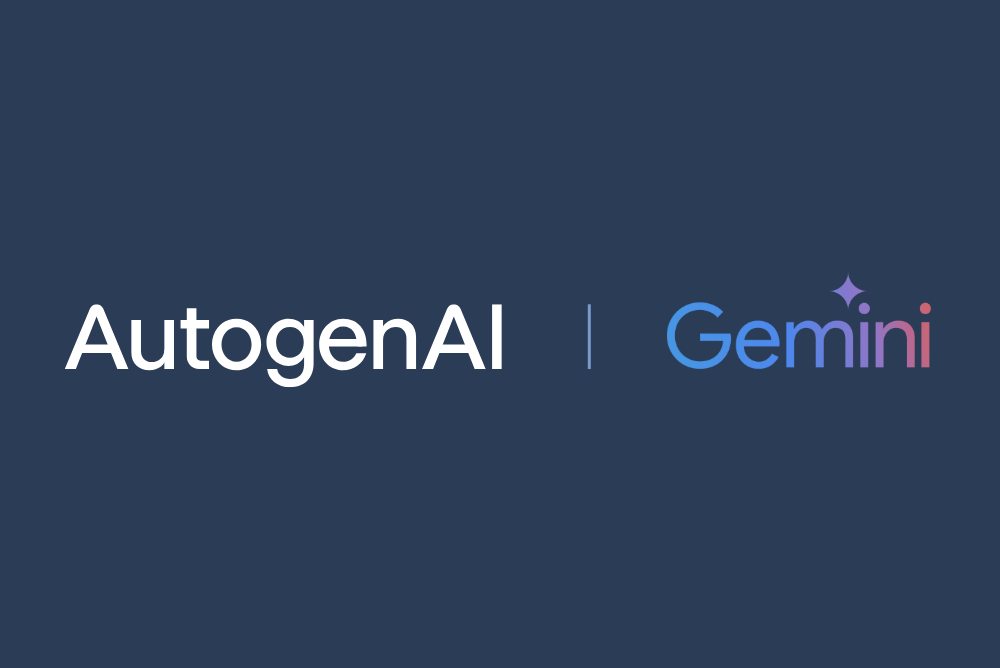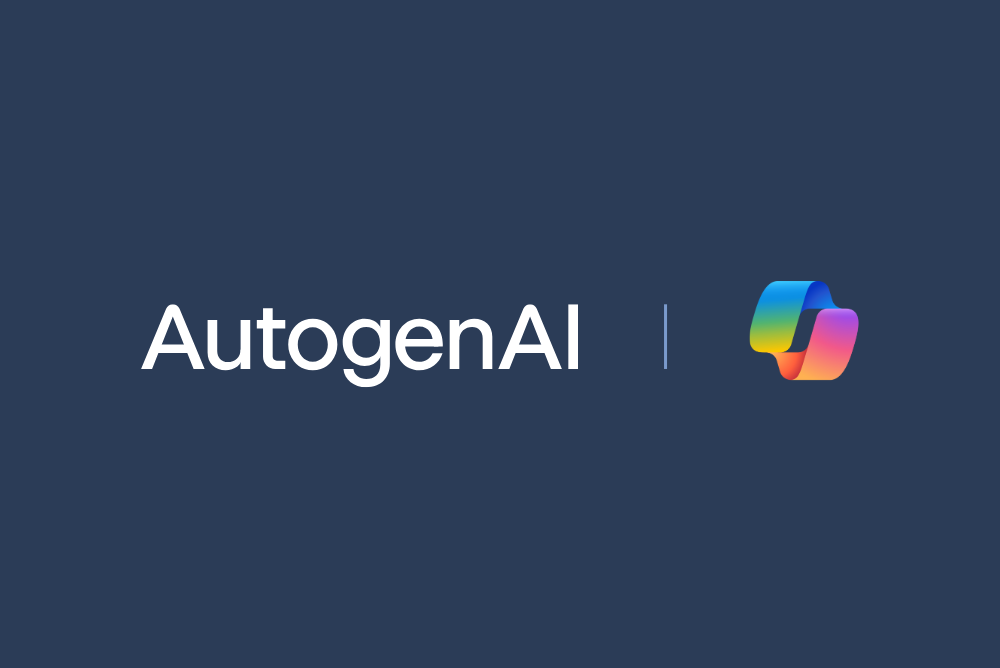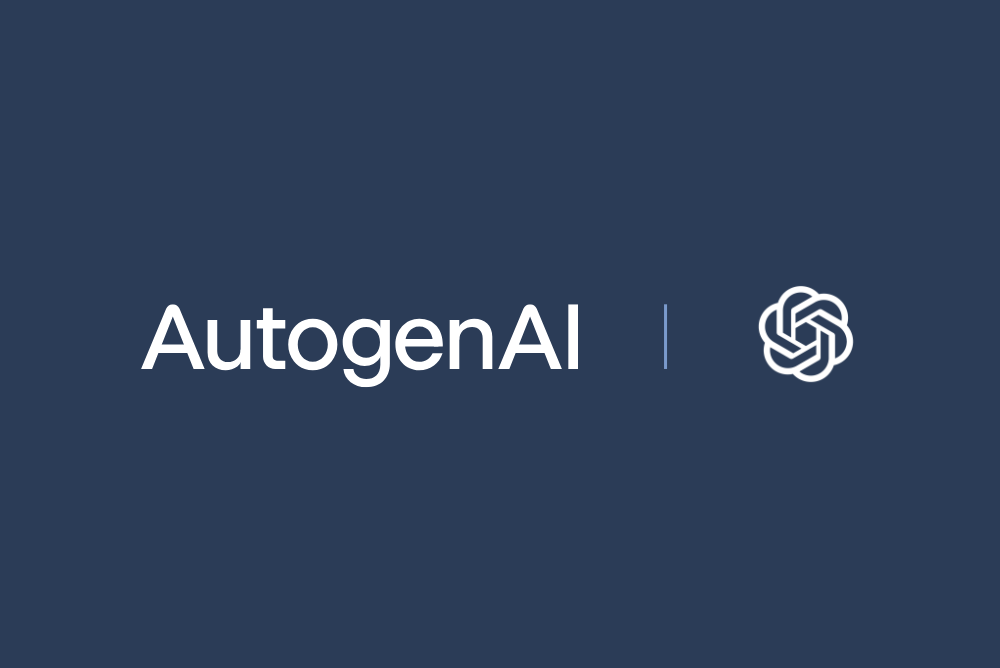The Evolving Landscape of Human Work and Generative AI: A Positive Outlook
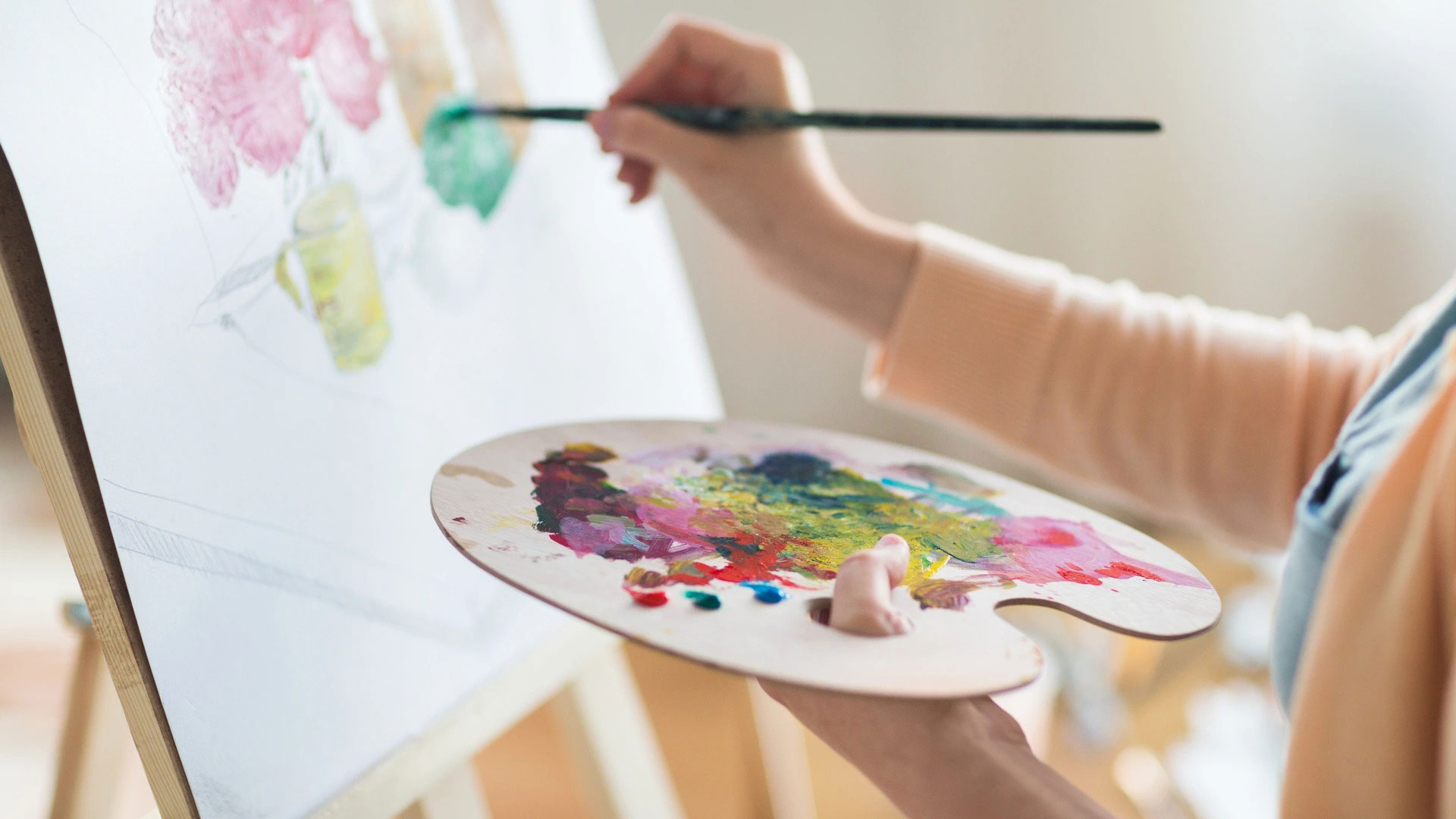
The idea that robots will take over creative pursuits while humans are relegated to low-wage manual labour has been gaining traction on social media. Here’s a version of it from Twitter with 4.3 million views:
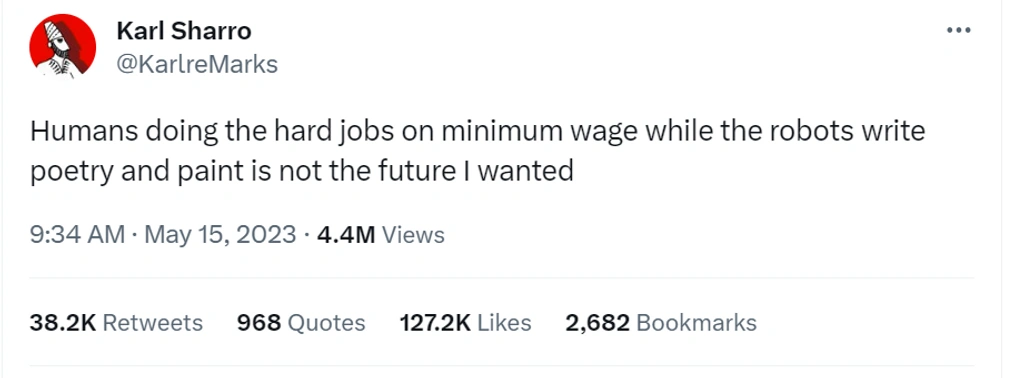
The statement paints a stark picture of an imagined future wherein human labour is marginalised and AI dominates creative fields. However, a closer analysis of the subject suggests a more optimistic and transformative potential reality.
Understanding the Current Labour Landscape
Socio-Economic Realities
It is crucial to acknowledge the current global labour landscape, where millions of people are engaged in strenuous jobs for low wages. This reality reflects socio-economic disparities and systemic employment issues.
However, this does not imply permanence; rather, it underscores the need for structural change.
The Rise of Generative AI and Creative Automation
Technological Advancement Beyond Routine Tasks
The emergence of generative AI capable of creating art and writing poetry demonstrates the extraordinary progress of technology.
While this may initially appear irrelevant or even frivolous compared to pressing human needs, it signals the potential of AI to reshape work paradigms.
From Automation to Creativity
AI’s ability to automate routine tasks has long been recognised. Now, its capacity to undertake creative work is becoming clear. This shift implies that AI may liberate humans from both monotonous and strenuous work, enabling them to focus on more meaningful, fulfilling pursuits.
Democratising Creativity Through AI
Expanding Access to Art and Literature
The presence of AI in creative fields can democratise art and literature, making them more accessible to a wider audience.
With AI generating poetry, paintings, and other creative outputs, art can inspire human creators and foster a broader appreciation of cultural expression. This could drive a societal shift that values creativity and innovation over manual labour.
The Evolution of Manual Labour in an AI-Driven World
Safer, More Efficient, and Higher-Value Work
The integration of AI and robotics will not make manual labour obsolete, but it will evolve its nature.
- AI can make hard jobs safer, more efficient, and less physically taxing.
- Workers can be upskilled to oversee automated processes, increasing productivity and improving working conditions.
- Economic savings from AI integration can be redirected to boost wages and worker benefits.
- The implementation of universal basic income (UBI), partly funded by AI-driven profits, could address wage disparities more equitably.
Rethinking Socio-Economic Structures
A Call for Reform
The viral statement serves as a wake-up call to rethink socio-economic systems and the value placed on different forms of work. It highlights the need for reforms that ensure fair wealth distribution, access to opportunities, and protection for workers in an AI-augmented economy.
A Positive Outlook for the Future of Work
Redefining Work Through AI
The advent of generative AI does not inevitably lead to a dystopian world where humans toil while machines create. Instead, it represents an opportunity to redefine work and build more equitable and creative societies.
If leveraged wisely, AI can enable humans to move beyond strenuous labour, foster widespread creativity, and create more prosperous and balanced futures for workers across all sectors.
